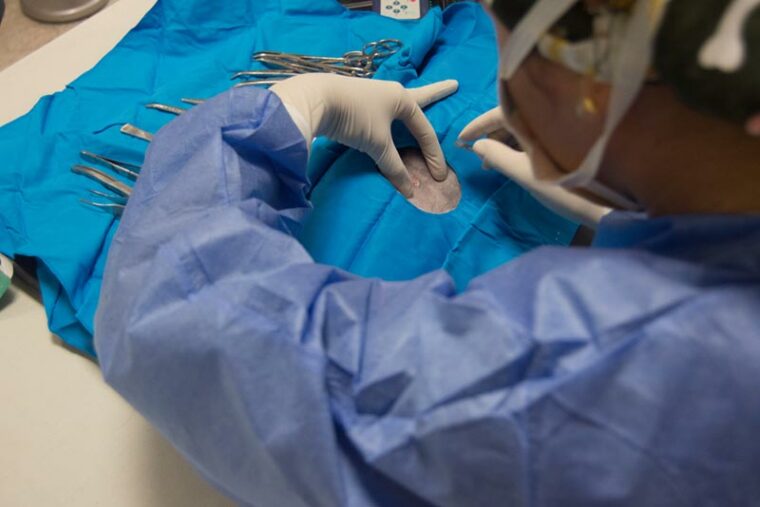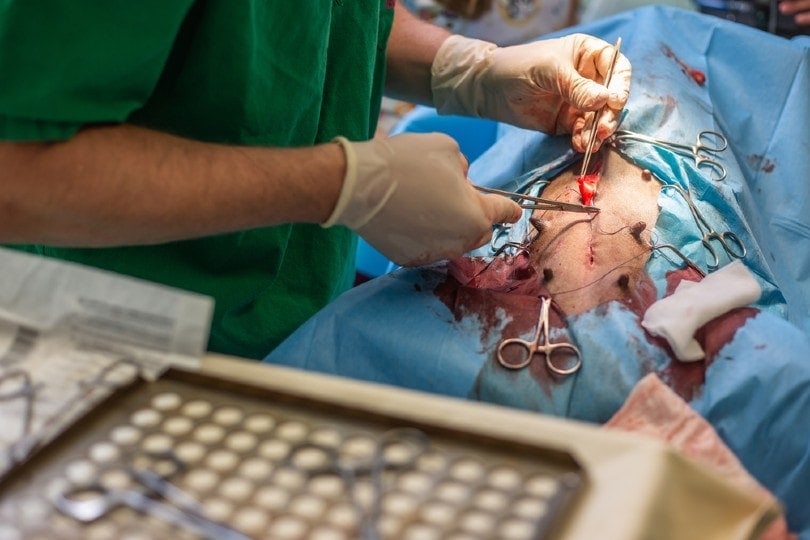
Spay and Neuter Awareness Month is an annual event celebrated every February throughout the world to promote the spaying and neutering of animals. It is held during the month of February, in recognition of World Spay Day, which falls on the last Tuesday in February. This important awareness campaign encourages pet owners to be responsible for their beloved pets and focus on controlling animal overpopulation. Let’s learn more about Spay and Neuter Awareness Month.
History of Spay and Neuter Awareness Month
The concept of celebrating a dedicated month to spread awareness about spaying and neutering was first discussed in early 2000s by a number of veterinary associations around the world. It was spearheaded by famous actor Doris Day’s Animal League and the American Humane Association who wanted to raise awareness about pet overpopulation. Finally, in 2004, World Spay Day was born as an annual event held on the last Tuesday of February each year.
Why Is It Important?
Spaying and neutering is an important part of responsible pet ownership because it helps keep the animal population under control. Every year, millions of unwanted cats and dogs are euthanized due to lack of space in shelters or re-homing opportunities. This can be avoided by spaying or neutering cats and dogs, as this reduces their urge and ability to reproduce and thus decreases the number of stray animals on our roads. Spaying or neutering also has several health benefits such as reducing the risk of certain cancers and other reproductive diseases.

Ways to Celebrate Spay and Neuter Awareness Month
There are many ways to celebrate Spay and Neuter Awareness Month including raising awareness through educational campaigns, organizing spay/neuter clinics or events, and donating to organizations that provide free spay/neuter services. You can also encourage your friends and family to have their pets spayed or neutered, spread the word about World Spay Day on social media, or even take part in fundraising activities for animal welfare organizations.
How Many Pets End Up in Shelters Each Year?
More than 6.5 million pets end up in shelters each year in the United States, and of those, 3.2 million are euthanized due to lack of space or re-homing opportunities. This is an alarming figure that could be avoided if more pet owners took responsibility for their beloved animals and spayed or neutered them when they became adults.
FAQs About Spaying and Neutering:
Q: Is it safe to spay or neuter my pet?
A: Yes, it is safe and highly recommended by vets as it helps keep your pet healthy in the long run.
Q: Are there any risks associated with spaying or neutering my pet?
A: As with any surgery, there is always the risk of complications, especially when animals are put under anesthesia. However, the risk of complications is very low, but it’s important to speak to a vet and make sure your pet is healthy enough before undergoing the spay/neuter procedure.
Q: What age should I spay or neuter my pet?
A: It is best to consult with a vet regarding the right age for spaying or neutering your pet as different breeds have different age requirements. However, most kittens and puppies usually need to be at least six months old before being spayed/neutered.

Q: Is there any cost involved in spaying or neutering my pet?
A: Yes, there is some cost to spay or neuter your pet. However, many animal welfare organizations offer free and low-cost services during Spay and Neuter Awareness Month.
Q: What are the benefits of spaying or neutering my pet?
A: Spaying or neutering your pet helps to reduce overpopulation, as well as provide several health benefits such as reducing the risk of certain cancers and other reproductive diseases.
Q: Can I still celebrate Spay and Neuter Awareness Month if I can’t afford to spay or neuter my pet?
A: Absolutely! You can still celebrate this important awareness month by spreading the word about World Spay Day on social media, taking part in fundraising activities for animal welfare organizations, or even volunteering at a local shelter.
Q: Do female cats and dogs need to be spayed?
A: It’s a good idea for female cats and dogs to be spayed to prevent overpopulation if you aren’t planning on starting a breeding program. Spaying can also reduce reproductive health issues.
Q: Do male cats and dogs need to be neutered?
A: Yes, it is recommended that all male cats and dogs are neutered in order to reduce the risk of unwanted behaviors and reproductive health issues.

Q: Is it true that spaying or neutering my pet will make them lazy and fat?
A: No, this is a myth. Spaying or neutering your pet can help to reduce their appetite which can result in weight loss, but it won’t make them lazy.
Q: Does spaying or neutering alter my pet’s personality?
A: No, spaying or neutering does not alter a pet’s personality as these procedures are only done for health reasons.
Q: Is it true that spaying or neutering my pet will make them aggressive?
A: No, this is a myth. Spaying or neutering your pet can help to reduce aggression in male cats and dogs as these are usually caused by hormone imbalances.
Q: Does spaying/neutering cause pets to become less active?
A: No, spaying or neutering does not affect a pet’s activity level. In fact, it can even help to reduce the risk of certain diseases that could lead to decreased activity levels in the future.
Q: Are there any risks associated with waiting too long to spay/neuter my pet?
A: Yes, if you wait too long to get your pet spayed/neutered, there is an increased risk of them developing reproductive cancers and other diseases.

What If I Never Spay or Neuter my Dog?
If you never spay or neuter your dog, it increases the risk of health problems, behavioral issues, and pet overpopulation. Unneutered male dogs are more likely to roam in search of a mate, which can lead to fights with other animals and injuries. Unspayed female dogs will come into heat every six months and may attract unwanted attention from male dogs. Unspayed female cats also go into heat more frequently and will often yowl loudly and spray inside the home, which can be a nuisance for pet owners. Additionally, not spaying or neutering your dog contributes to pet overpopulation and may lead to more homeless animals ending up in shelters.
Note that you should always consult a vet before spaying/neutering your pet as they can provide tailored advice based on breed, size, and lifestyle. Additionally, if you cannot afford the cost associated with spaying or neutering your pet there are many organizations that offer free services.
Finally, it is important to remember that spaying and neutering can help reduce the number of unwanted cats and dogs in our communities, but also requires our ongoing efforts to educate pet owners about responsible animal ownership. So please be sure to talk about this important topic with your friends and family and encourage them to get involved!
Conclusion
Spay And Neuter Awareness Month is an important event to help spread awareness about the importance of spaying and neutering pets. It is an opportunity for us all to take action and do our part in preventing animal overpopulation, promoting responsible pet ownership, and providing healthier lives for our beloved animals. So be sure to get involved this February and join the movement!
See also:
Featured Image Credit: AndresDica, Shutterstock









